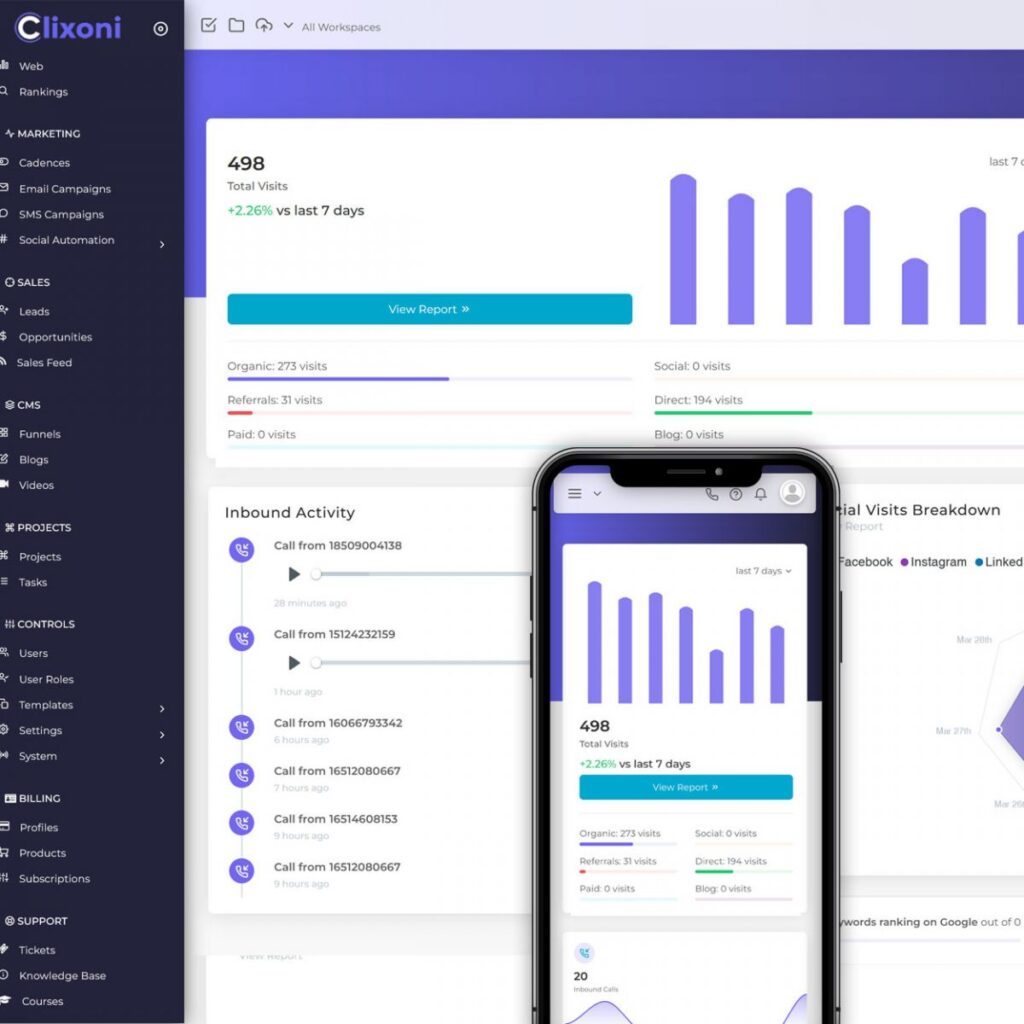Crafting your consulting website is like laying out a welcome mat for potential clients; it’s the first impression that must invite them in while subtly hinting at the depth of expertise lying beyond the threshold.
You’ve got to balance aesthetics with functionality, ensuring that each element from the homepage to the contact form aligns with your professional brand and speaks directly to the needs of your audience.
Consider this: your website isn’t just a digital brochure; it’s a dynamic tool that should work as hard as you do to generate leads, build trust, and showcase your unique value proposition.
Structuring a consulting website involves several key elements.
- Homepage: This should provide a clear and concise introduction to your consulting services, highlighting your expertise and unique selling points. Include a call-to-action to encourage visitors to explore further.
- About Us: This section should provide information about your consulting firm, including your background, experience, and values. It establishes credibility and builds trust with potential clients.
- Services: Clearly outline the consulting services you offer, including a brief description of each service. Consider including case studies or testimonials to demonstrate successful past projects.
- Team/Consultants: Introduce the members of your team or individual consultants, highlighting their expertise and qualifications. Include professional headshots and brief bios to establish credibility.
- Testimonials/Client Success Stories: Share positive feedback from previous clients to demonstrate your expertise and the value you provide.
- Contact Information: Clearly display your contact information, including phone number, email address, and physical address. Consider including a contact form to make it easy for potential clients to reach out.
- Blog/Resource Center: Share valuable content and insights related to your consulting niche. This helps establish thought leadership and attracts potential clients searching for information related to your expertise.
- Portfolio/Case Studies: Showcase your previous consulting projects and highlight the impact you made. Include details about the client, problem, solution, and results achieved.
- FAQ: Anticipate common questions potential clients may have and provide clear and concise answers. This helps address any concerns and build trust.
- Call-to-Action: Include clear and compelling calls-to-action throughout the website to encourage visitors to take the next step, such as scheduling a consultation or requesting more information. Remember to keep the design clean and professional, optimize for mobile devices, and ensure easy navigation throughout the website.
As you ponder the essential components that will bring your online presence to life, ask yourself what strategies will not only capture attention but also convert curiosity into meaningful engagement.
Key Takeaways
- Crystallize your brand identity and articulate your unique value to resonate with your desired clientele.
- Choose a design template that reflects your brand’s core values and message, while also prioritizing responsive design for a seamless user experience.
- Customize your template to stand out and make a memorable impact, ensuring it visually communicates the impact and benefits of your services.
- Optimize your website for search engines and implement SEO best practices for improved discoverability and attracting the right clientele.
Define Your Brand Identity

To effectively differentiate yourself in the consulting market, it’s essential to first crystallize your brand identity, ensuring it resonates authentically with your desired clientele.
Establishing your brand identity goes beyond logos and color schemes; it’s about articulating who you are, what you stand for, and the unique value you bring to the table.
This involves a deep dive into your area of expertise, highlighting the professional services you offer that set you apart from the competition.
Your brand story is the narrative thread that weaves through every aspect of your business. It should align with your values and speak directly to the needs and aspirations of your audience, fostering a sense of belonging and community. Authenticity here is key—you must walk your talk to build trust and brand loyalty.
Make sure the first thing they see when they land on your website is a clear message about who you help and how you help them. Here is a simple framework you can use:
We help ______ achieve/do ______ so they can ______ without ______
For example you might say: We help C-Level executives introduce a new software platform so they can reduce costs by X% without staff resistence, demoralisation or techno fear.
A well-designed website serves as the digital handshake with potential clients. It’s where first impressions are crafted and expectations set.
Through strategic design elements, your site should embody your brand identity, mirroring the professionalism and distinctiveness of your services.
By customizing your online presence, you don’t just blend into the background; you stand out, making a memorable impact on those who are seeking exactly what you offer.
Select a Design Template
When selecting a design template for your consulting website, it’s crucial to identify aesthetics that resonate with your niche and convey your expertise.
If you’re creating a website yourself be aware you may face additional charges if using a pre-designed template.
WordPress is a hugely popular choice for websites, but as it’s a blogging platform out of the box it doesn’t come with templates or advanced functionality built in, you’ll need to download a ‘theme’ or a page builder (e.g. Brizy).
Online website builders have grown in popularity; they come with themes built in and are usually very easy to use. Options such as Wix, WebWave, WebStarts, etc, all make it possible to get your first website online quickly. Whether it’s any good is another matter!
You’ll need to evaluate the functionality of the template, ensuring it supports your strategic content placement and user navigation needs.
Of course, if you’re at the stage where you’re able to pay a professional to do the work for you that opens up more options. For example, Clixoni will not only create your website, but they’ll also provide you with a suite of business tools (e.g. VoIP number, email marketing platform, CRM and lead management, project management etc).

Above all, prioritize a responsive design to guarantee a seamless user experience across all devices, reinforcing your professional image.
Identify Your Niche Aesthetics
Selecting a design template that mirrors the unique aesthetics of your consulting niche can significantly enhance your brand’s online presence. The design elements you choose shouldn’t only reflect the professionalism and credibility of your consulting firm but also resonate with the community you aim to serve.
Think of your website as your digital handshake; it should visually express the essence of the services you provide.
Here are some strategic choices to consider:
- Reflect Your Brand Identity: Choose design elements that embody your brand’s core values and message.
- Customization is Key: Tailor the template to fit your unique aesthetic, ensuring it aligns with your brand.
- Professional Appeal: Opt for a template that projects the sophistication expected of a consulting firm.
- Stand Out: Incorporate distinct design features that differentiate you from competitors.
- Visually Communicate Value: Ensure the template showcases your services’ impact and benefits clearly.
If you’ve decided to do the website yourself try and avoid falling into the trap of making the website look flash with sliders and animations. We’ve all been in meetings where someone went overboard with a PowerPoint presentation, using too many animations and 10 different fonts. It’s distracting.
The same is true of websites. Keep it simple, clean, and to the point. Make it clear what you do, who you help, and how they can get in touch with you.
Evaluate Template Functionality
After identifying your niche aesthetics, it’s crucial to consider how design template functionality will serve your website’s operational needs and enhance user experience.
When you evaluate template functionality, think strategically about the specific features you need to add to resonate with your audience and to make your consulting services stand out.
| Feature | Benefit | Your Website Needs |
|---|---|---|
| Responsive Design | Ensures accessibility on all devices | Must-have for client convenience |
| Customizable Layouts | Tailor to your brand identity | Reflect your unique value proposition |
| Integration Capabilities | Add features seamlessly | Essential for scalability and growth |
Select website templates that not only align with your brand but also offer the flexibility to grow with your business. Remember, the right template will make your visitors feel at home and confident in your professional services.
Prioritize Responsive Design
Ensuring your consulting website’s design adapts seamlessly to all devices is a critical step in engaging a broader audience and maintaining professionalism.
As a strategic move, select a design template that not only reflects your brand identity but also encapsulates the essence of responsive design. This will show your target audience that you’re not just another consultant; you’re a web designer who understands their needs and the importance of a user-centric approach.
Start with a professional services template for a solid foundation. Customize to infuse your unique brand identity. Ensure cross-device compatibility for user convenience. Choose a design that resonates with your audience. Differentiate yourself with a visually compelling website design.
Of course that’s just the basic features. You’ll find that if you want advanced features, such as client management, email marketing, project management tools, you’ll usually need to pay additional costs.
For example, WordPress would require extra plugins to add extra features. Of course there are exceptions to the rule; as mentioned, Clixoni don’t just design and host your website; they include a range of business tools and services to help you grow your business.
Develop a Compelling Homepage
Your homepage serves as the pivotal first point of contact, where a strategic blend of unique branding, clear value propositions, and visual storytelling must captivate and engage your potential clients from the outset.
Crafting an effective consulting website hinges on making a powerful first impression, so your homepage should reflect the essence of your brand and clearly communicate your expertise.
Think of your homepage as the opening chapter of your brand’s story. It’s where you set the scene and invite visitors to become part of your narrative.
To achieve this, your content must be user-centric, weaving in elements that resonate with your audience’s desire for belonging and connection.
Here’s a table to guide you in visualizing the key elements of a compelling homepage:
| Key Element | Description | Impact |
|---|---|---|
| Unique Branding | Express your brand’s identity | Creates a memorable impression |
| Clear Value Proposition | Articulate what sets you apart | Establishes relevance and trust |
| Visual Storytelling | Use images and design to tell your story | Engages and retains attention |
| Testimonials & Successes | Showcase client satisfaction & achievements | Builds credibility and confidence |
| Clear Call to Action | Prompt visitors to engage further | Facilitates a seamless journey |
Ensure your homepage includes a clear call to action, guiding visitors effortlessly to the next step. It’s the cornerstone of an effective consulting website, fostering a sense of community and ensuring your visitors feel they’ve truly arrived at the right place.
Expand With Key Pages
Having established a captivating homepage, it’s crucial to expand your consulting website with key pages that delve deeper into who you are, what you offer, and why clients should choose your services.
Your About page is where you invite visitors to connect with your journey, highlighting the expertise that sets you apart.
A well-crafted Services page is essential, offering a clear description of your offerings and painting a picture of potential outcomes.
Include the following to ensure your website resonates with your audience and reflects a sense of belonging:
- About Page: Share your story and the values that underpin your consultancy, fostering trust.
- Services Page: Detail your services with testimonials, reinforcing your track record.
- Case Studies: Demonstrate how you’ve delivered value to past clients, illustrating real-world success.
- Blog: Provide insights and thought leadership, establishing a community around your expertise.
- Contact Page: Make reaching out simple with a user-friendly contact form, inviting engagement.
Strategically align these elements with your brand to build a cohesive and trustworthy online presence. Pay close attention to details like credentials and social proof to underscore your value proposition and expertise.
Integrate Essential Features
To elevate the client experience, integrate a self-scheduling calendar on your consulting website, allowing prospects to effortlessly book appointments or classes at their convenience.
This feature not only enhances user engagement but also bolsters your operational efficiency, freeing up time you’d otherwise spend managing schedules.
You’ll want to ensure your website includes these key features:
| Feature | Benefit |
|---|---|
| Custom Intake Forms | Streamline client onboarding by capturing essential information upfront. |
| Invoice Templates | Facilitate prompt billing and payment tracking, improving cash flow. |
| Email Automations | Keep clients informed and engaged with automated reminders and follow-ups. |
| Clear Cancellation Policy | Safeguard your time and ensure clients are aware of your terms. |
Strategically, incorporating these elements means you’re optimizing the user journey from the get-go.
It’s also critical for your site’s search engine optimization (SEO) that you include relevant content, making it easier for clients to find you via search engines.
Implement SEO Best Practices

While structuring your consulting website, it’s essential to implement SEO best practices to ensure your services are easily discoverable by potential clients.
Optimize your website not just for aesthetics but for its ability to rank in search results, which ultimately connects you to your community and those in need of your expertise.
To foster this sense of belonging and maximize visibility, consider these strategic SEO tips:
- Keyword Research: Integrate relevant keywords naturally into your content to improve indexing and relevance.
- Meta Descriptions: Craft compelling SEO descriptions for each page to enhance searchability and click-through rates.
- Secure Connections: Enable SSL certification to ensure secure browsing and favor from search engines.
- Advanced SEO: Employ sophisticated SEO tactics to boost your website’s visibility and climb the search rankings.
- Optimized Content: Focus on creating and structuring content that search engines love, which in turn, attracts the right clientele.
Does this sound like a lot of work on top of your existing job? It is! That’s why it’s a good idea to outsource this task to others to ensure you can work on growing your business.
Frequently Asked Questions
How Do I Create a Website for My Consulting Business?
To create your consulting business website, apply design principles that resonate with your audience, craft a content strategy that reflects your expertise, and focus on user engagement to foster a sense of belonging.
Either make use of a platform such as WordPress or a website builder, or get professionals such as Clixoni to build the site for you.
What Is the Best Structure for a Consulting Business?
You’ll want a structure that showcases your consulting niches, highlights effective pricing strategies, and features client testimonials to foster trust and a sense of belonging among your prospective clients.
Do Consultants Need a Website?
Yes, you need a website to strengthen your digital presence, boost brand legitimacy, and optimize client acquisition. It’s crucial for connecting with your community and establishing a strategic, user-centric hub for your consulting services.
How Do You Structure a Consultancy?
To structure your consultancy, adopt proven consulting models, clearly outline service offerings, and showcase client testimonials to affirm your expertise and foster a sense of community and belonging among your clientele.
Final Thoughts
In conclusion, your consulting website is your digital handshake. Craft it to reflect your brand’s unique story and expertise. Choose a design that resonates, create a captivating homepage, and expand with pages vital to your services.
Integrate features like self-scheduling to enhance user experience. Leverage SEO to climb search rankings. Remember, it’s not just a one-time setup; analyze, iterate, and market strategically to keep your site aligned with client needs and ahead of the competition.





